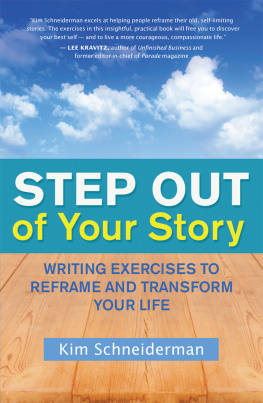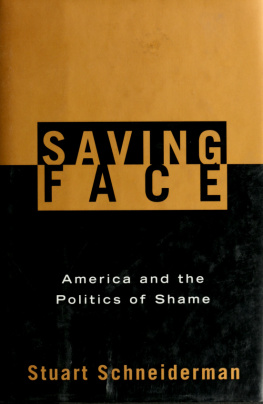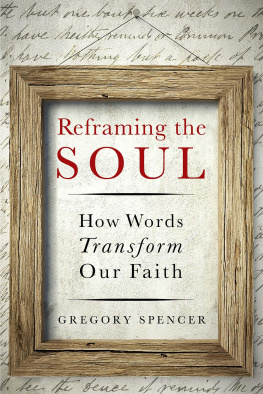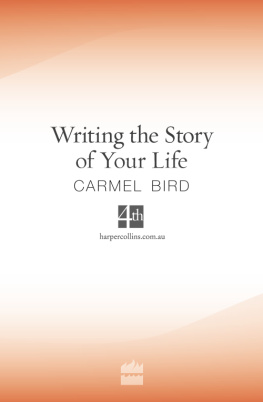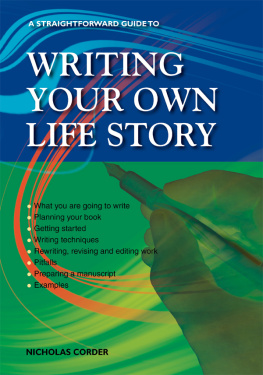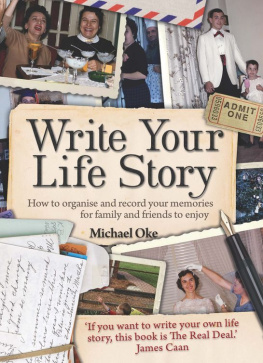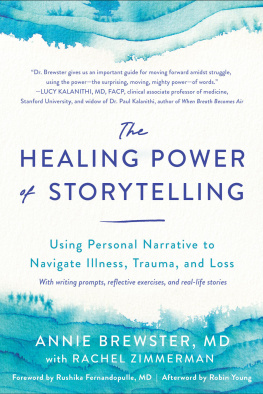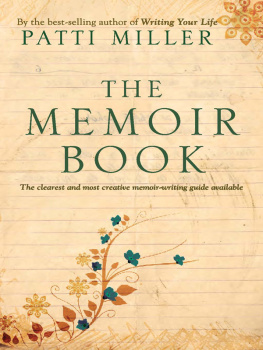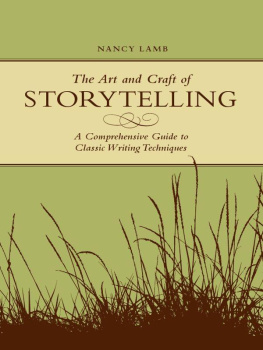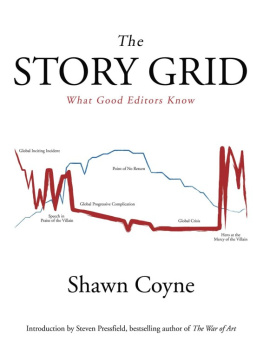Praise for Step Out of Your Story
This book presents many helpful ideas with clarity and humor. There is something for every individual seeking the golden thread or yellow brick road that leads from suffering to joy and from pain to spiritual health.
Nancy Rosanoff, spiritual counselor and author of Intuition Workout
Our life histories shape us, our attitudes, our life views, and our relationships as well as our strengths and weaknesses. Kim Schneidermans book is a fantastic demonstration of this.
Samuel C. Klagsbrun, MD, executive medical director, Four Winds Hospital
Read this ingeniously devised book, do the exercises, and discover how you can step out of your story and take control of your life.
Albert J. Bernstein, PhD, author of Dinosaur Brains and Emotional Vampires
Step Out of Your Story is a truly fresh approach to reflective writing. By placing our own lives in the context of plotlines, characters, and narrative devices, Kim Schneiderman provides an ingenious way to twist our cultures fascination with reality TV and sensational movies and channel it toward the story that matters most: the narrative of our own lives. Both entertaining and evocative, this books approach to self-awareness promises to reveal a fascinating story you may not have realized was inside you.
Marney K. Makridakis, author of Creating Time and Hop, Skip, Jump
In Step Out of Your Story, Kim Schneiderman shows us in step-by-step, practical, and creative exercises how to change our lives by changing our stories. What an innovative way to channel our natural storytelling abilities into a powerful ally for a richer, more satisfying life.
Judy Reeves, author of Wild Women, Wild Voices


| New World Library
14 Pamaron Way
Novato, California 94949 |
Copyright 2015 by Kim Schneiderman
All rights reserved. This book may not be reproduced in whole or in part, stored in a retrieval system, or transmitted in any form or by any means electronic, mechanical, or other without written permission from the publisher, except by a reviewer, who may quote brief passages in a review.
The material in this book is intended for education. No expressed or implied guarantee of the effects of the use of the recommendations can be given nor liability taken.
Text design by Tona Pearce Myers and Tracy Cunningham
Plot diagram that first appears on by Tracy Cunningham
Library of Congress Cataloging-in-Publication Data
Schneiderman, Kim, date.
Step out of your story : writing exercises to reframe and transform your life / Kim Schneiderman, LCSW, MSW
pages cm
Includes bibliographical references.
ISBN 978-1-60868-232-4 (paperback) ISBN 978-1-60868-233-1 (ebook)
1. Narrative therapy. 2. PsychotherapyProblems, exercises, etc. 3. Personal construct therapy. I. Title.
RC489.S74S36 2015
616.89'165dc23
2015010467
First printing, June 2015
ISBN 978-1-60868-232-4
Printed in the USA on 100% postconsumer-waste recycled paper

| New World Library is proud to be a Gold Certified Environmentally Responsible Publisher. Publisher certification awarded by Green Press Initiative. www.greenpressinitiative.org |
10 9 8 7 6 5 4 3 2 1
To my parents, Linda and Bernie Schneiderman, who live on through the stories we tell about them
What matters in life is not what happens to you, but what you remember and how you tell it.
Gabriel Garca Mrquez, Gabriel Living to Tell the Tale
When I was a little girl, I used to sign my name Kim S., in person. Between my highly active imagination, my obsession with Nancy Drew books, and my daily diet of television, I had the uncanny sense that I was a character in a story. I couldnt exactly say why or who was watching. Perhaps it was because of my well-meaning but marginally overbearing parents or the inflated sense of self-importance that afflicts many would-be writers who imagine themselves as the stars of their own terribly compelling dramas.
My sense of being a character, though tempered by maturity, followed me into adulthood, where I kept it under wraps, while secretly turning to my Kim S. alter ego in times of stress. Whenever I had a why me? moment times when I felt victimized by difficult people or circumstances Id imagine reading about the exact same situation in a novel. First, I would ask myself, What would I hope the main character would do in response to these circumstances? What actions or outcomes would I root for as the reader of this story? Second, because I appreciate good character development in novels, Id wonder, Why would a benevolent author place this character in this particular situation? And, What might this situation be teaching her? Finally, because I see life as a spiritual story that Im coauthoring: How might she make the most of this situation to become a stronger, more compassionate human being?
The answers to these questions and similar lines of inquiry helped me successfully navigate many challenging chapters in my life, emerging from them as a stronger, wiser, and happier person. Enhanced by my insights as a psychotherapist and journalist, such questions became the basis for a series of writing workshops I began offering around the New York metropolitan area in 2008. My hope was that self-exploratory writing in the third-person voice could help participants many of whom had been impacted by the recession reframe their losses as stepping-stones to a richer spiritual life and a deeper sense of self.
Like the protagonist in many stories, my Pollyannish premise was soon put to the test. In February 2012, my seventy-two-year-old father developed an aggressive form of cancer that took his life a few months later. Suddenly, I was a single, middle-aged orphan. My fathers death was the third cancer fatality in my small, immediate family in seven years. In 2005, my sixty-one-year-old mother lost her decade-long battle with ovarian cancer. Less than a year later, my father found love again. Four years later, his girlfriend died after a year-long battle with lung cancer, also at sixty-one.
After experiencing so many devastating losses, I had to ask myself, Could I walk my talk? Did I truly believe that I had the power to transform my tragedies into triumphs simply by choosing to widen the lens through which I viewed my own story?
Yes, I did, but understanding how requires reading between the lines. My father was the antagonist of my childhood story. The external narrative how it looked from the outside was that he was a good provider who worked tirelessly to offer his children all the opportunities he had been denied growing up in a working-class Jewish family in the Bronx. Yet the internal story, how I experienced him, was quite different. I never felt he understood me. He was a benevolent despot of sorts, and his because I told you so was never a satisfying response to all my important why questions. Because I was equally headstrong, I challenged him, and I made my mother my confidante. When I graduated college, I moved to San Francisco, putting several cities and mountain ranges between us.
Yet our story took an unexpected, positive turn after my mother died and I moved back to New York. Suddenly, my father and I were spending more time together, grieving my mother over Chinese food, biking up northern Westchester trails, sharing our mutual love of dance, and flying to California for family gatherings. I was older and wiser, and having undergone years of therapy, I had come to appreciate my fathers many positive attributes without taking his rougher edges quite so personally.
Next page
